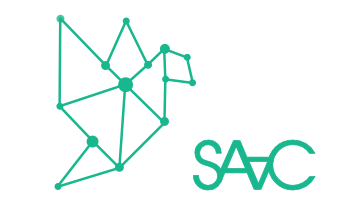Author: Giuseppina Schiavone
In the post A personal history about a small family business in logistics I share the evolution of my father’s Third-Party Logistics (3PL) company, from its birth to its end, with the twofold objective: 1) spell out some of the challenges of running a small business in a multi-stakeholders industry in continuous evolution and 2) connect with business owners and professionals facing similar challenges.
Thinking across the lines and trying to take a distant perspective while looking at my family business successes and failures, I collected some key advisory lessons to improve the resilience of a business even given its complexity.
- Stay open minded and humble, move with the time and do not give up
- Welcome both business and technological innovation: taking small steps in this direction will help to manage budget for investments
- Keep yourself and your team up-to-date with technological and infrastructure development and with regulatory frameworks
- Keep in mind that no matter the clarity of legislations and the solidity of technological infrastructure, there are no one-size-fit-all solutions and you will have to continuously adapt to changing scenarios: if your business strategy is successful today it may well fail tomorrow
- Make the time to review your assets and goals, which also translates into maintaining and updating your business infrastructure and governance
- Build strategic public and private relationships within and outside your industry
- Consider that image and reputation will automatically grow if your business consistently fulfill the needs of your clients and is of good quality: satisfied clients will do the marketing for you
- Diversify your services and your clients: this will ensure growth and continuity and will allow you to contribute to social equality and distribution of wealth
- Think and act more in terms of cooperation than competition with your business peers: sharing infrastructure and even clients, in times of abundance, can help to keep your business’s waste and costs low, stay focused, create a network of trust and build resilience
- Listen to your client needs and look at them in a bigger context to build long-term trust and loyalty relationships. Ask yourself the questions: Why do you clients need a specific service at a specific moment? What will they need in the future? How the external context is affecting and will affect your clients’ preferences? How can you empower your clients to make better decisions?
- Connect with your employees, recognize their work, promote their well-being and career development and listen to their feedback to improve the efficiency of your processes: a worker is more prone to delays, distractions, lack of care and commitment when she/he does not feel valued within the organization
- Move from gut-driven to a data-driven or at least hybrid decision-making processes, accounting for company goals, societal and environmental impact, internal and external constraints.
- Involve both your clients and your employees in business development processes
- Use system thinking: think in terms of time, space, costs, waste, resources, energy, technology, people and planet wellbeing, future generations and impact
- Ask for help from experts when you feel you are missing competences in your company for making the right decisions. Consult more than one expert for double opinions or join professionals’ networks to learn about different options.
- Find strategies for stress management, because taking, managing and mitigating risks is intrinsic in this type of work and problem-solving is a skill-set that never turns-off
If we could go back in time, would I have been able to convince my father to consider and reflect on these insights and help his business to be more resilient and lasting?
My first probable answer would be no, primarily because of his closed-mind attitude and his tunnel vision. At the same time, I believe that if I could have brought him facts and success stories within his organization showing the benefits of thinking and acting differently, he would have slowly considered integrating new sustainable strategies into his business processes.
Culture and mindset take time to change, nevertheless enabling the presence of mechanisms that can create positive reinforcement towards more sustainable and innovative solutions helps and promotes the consolidation of new healthy habits both at individual and at a group level.
Do you adopt some of these strategies for resilience in your business? Get in contact I would love to hear about your success stories!
